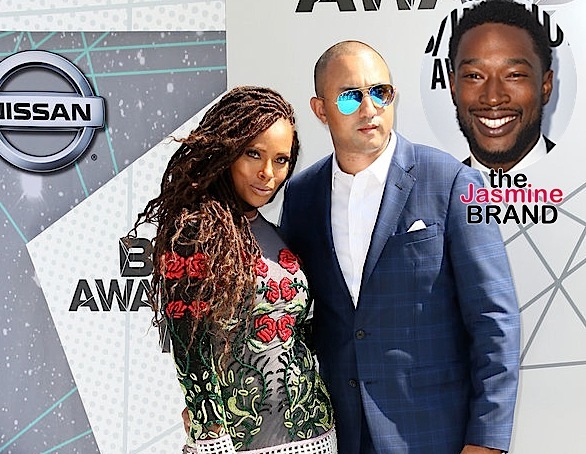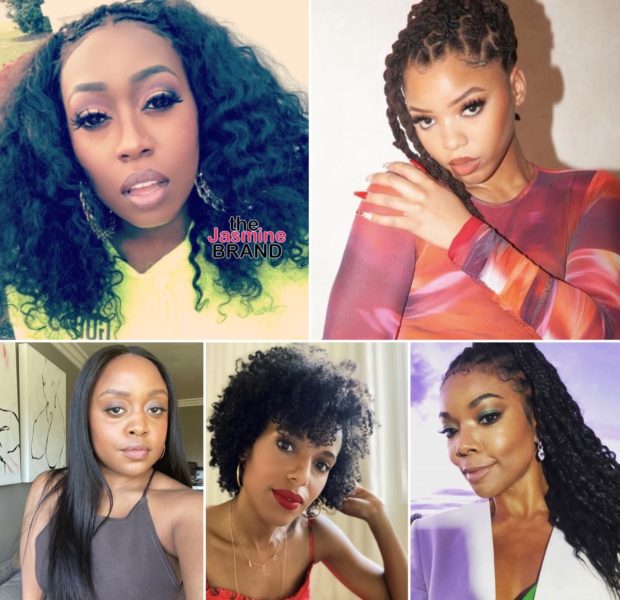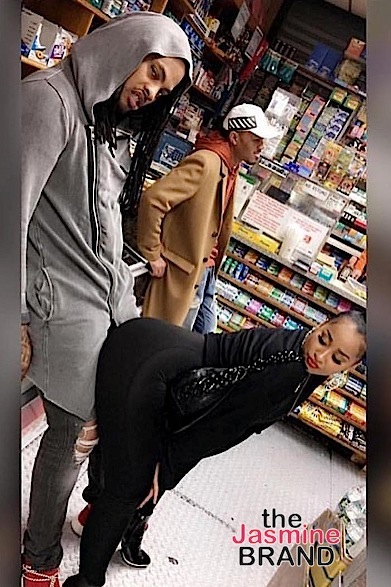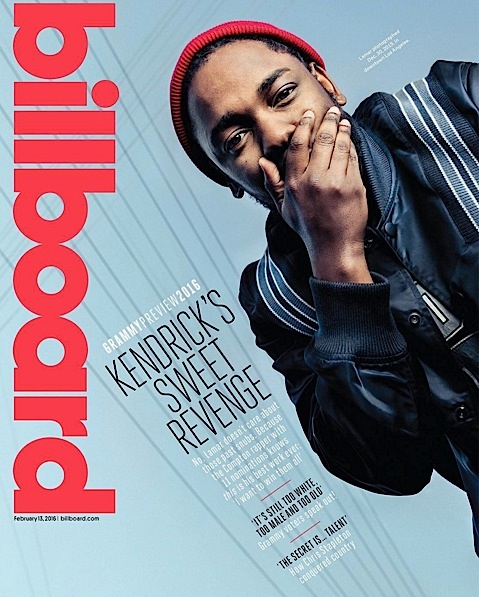President Obama & Misty Copeland Talk Racism, Gender Equality & ‘Black Girl Magic’
In a recent interview with Time, President Barack Obama and American Ballet Theatre principal ballerina Misty Copeland sat down with reporter, Maya Rhodan to discuss gender equality, racism and community involvement. Both Obama and Copeland are products of multi-racial families and were raised by single mothers.
Typically during a interview, a reporter asks a question and the interviewee responds. During this interview, in particular, the two community-involved advocates were asked to engage in dialogue in
regards to common topics surrounding their careers – Obama, who is the first African American U.S. President and Copeland, the first African American principal ballerina. Check out some excerpts from their interview and conversation.
When asked what they recognize and see in each other in regards to their commonalities:
OBAMA: You know, as the father of two daughters, one of the things I’m always looking for are strong women who are out there who are breaking barriers and doing great stuff. And Misty’s a great example of that. Somebody who has entered a field that’s very competitive, where the assumptions are that she may not belong. And through sheer force of will and determination and incredible talent and hard work she was
able to arrive at the pinnacle of her field. And that’s exciting.The other thing is, as a father of two daughters, seeing how images of strong athletic accomplished women carry over, and encouraging them in sports and dance and how they move physically, it turns out that every study shows that young girls who are involved in sports, dance, athletics end up having more confidence generally. And across the board in everything that they do end up being more assertive, happier. So this is one of the reasons why having Misty on our fitness council has been so important.
COPELAND: I think that there is a sense of humbleness and humility, and there’s a human that’s within you. And I think that that’s something that I can relate to and connect with that people are drawn to. And they feel this genuineness coming from you. And I think that it allows you to rise to this level, and not feel this pressure that’s kind of pushing you down, but allows you to take the responsibility with a sense of pride. And again just being grounded.
And I feel like as I’m embarking on my first season as a principal dancer I’m experiencing something that I didn’t prepare myself for, I think emotionally and mentally and psychologically. When you have all of these expectations and goals to reach this point that 1% get to, you know how do you – what do you do when you get there?
How do you stay grounded and humble and strident? And I think that’s on a much smaller scale for me, but something that I feel I can relate to with you that I can’t imagine you must have experienced.
When asked if they think people treat them differently because of their race:
COPELAND: You know, my experience has been that a lot of what I’ve experienced has not always been to my face, or it’s been very subtle. But it’s in a way that I know what’s going on and I feel it deep inside of me. And I, being the only African American in almost every environment in terms of classical ballet, it weighs on you and it wears on you after a while. And I feel like a lot of it as well is what I’m kind of putting on myself.
And this just trying to not get to caught up and too wrapped up and too weighed down with being black and trying to just be the best person and the best dancer that I can be. And work, and work harder than, even if I see the person next to me that things may be a little bit easier for them, I’m going to try and push myself even harder than them. But I think that being African American has definitely been a huge obstacle for me. But it’s also allowed me to have this fire inside of me that I don’t know if I would have or have had if I weren’t in this field.
OBAMA: Well part of classical ballet that makes it challenging is that there’s a very set way of doing things. There’s sort of this canon that people want it just a certain way, or they want it to look a certain way. So do you find now that you’re in a position where you can start pushing the barriers a little bit and the boundaries in terms of what people expect? Now that you’ve established that alright, I can do this, so let me also do that. Or I can master that style, and so now can we introduce something a little bit different? How much of that takes place?
The two pioneers discuss gender equality and racism in their respective fields:
OBAMA: I have to say as an outside, I don’t know if you feel the same way. When I hear that like your body type is considered sort of more athletic or large, you’re tiny. For those of you who are watching, you may not be able to see. I mean, you’re petite.
COPELAND: Yes.
OBAMA: So the notion that somehow that was even a question is pretty interesting.
COPELAND: Yeah, I mean I think it’s how – I think it’s a lot of the language and how we use it. And I think for a lot of people of color, that seems to be an easy way or a way out by saying you don’t fit in. It may be it’s your skin color. It may be the texture of your hair. Whatever it is.
The reporter asks Obama (being a father of two daughters) does he see the gender inequality or feel the pressure:
OBAMA: Yeah. I mean some of this is just gender issues, generally. I mean when you’re a dad of two daughters you notice more. When I was a kid I didn’t realize as much, or maybe it was even a part of which is the enormous pressure that young women are placed under in terms of looking a certain way.And being cute in a certain way. And are you wearing the right clothes? And is your hair done the right way. And that pressure I think is historically always been harder on African American women than just about any other women.
But it’s part and parcel of a broader way in which we socialize and press women to constantly doubt themselves or define themselves in terms of a certain appearance. And so Michelle and I are always guarding against that. And the fact that they’ve got a tall gorgeous mom who has some curves, and that their father appreciates, I think is helpful. I do think that culture’s changing for the younger generation a little bit more. You see Beyonce or you see some of these pop stars and what both white, Latino, black children are seeing as representative of beauty is much broader than it was when I was a kid.
You just didn’t see that much representation. And that’s healthy and that’s encouraging. But it’s
still a challenge. I mean Malia’ll talk about black girl’s hair and will have much opinions of that. And she’s pretty opinionated about the fact that it costs a lot, it takes a long time, that sometimes girls can be just as tough on each other about how they’re supposed to look. And so it’s, as a parent, that’s a constant learning process that you’re trying to hold the fort. And that’s why somebody like Misty ends up being so important.
When asked about the effectiveness of programs and movements, like Black Girls Magic, to help reduce racial barriers:
COPELAND: It’s so important for this generation. And to use social media to have a positive impact on our generation is huge. And I know that you have a presence as well. And it’s such a part – I think we have to be involved I think in order to really reach the younger generation on social media. But to have movements like Black Girl Magic, I think it couldn’t be more positive for a young black girl to see that it’s okay to be yourself, it’s okay to not have to transform and look like what you may see on the cover of a lot of magazines.
That you are beautiful, that it’s possible to succeed in any field that you want to, looking the way that you do. With your hair the way it is. I think all of that is so extremely important and something that I’m constantly celebrating. That something that I fought so hard for throughout the beginning of my career is I didn’t want to pancake my skin a lighter color to fit into the … ballet. I wanted to be myself. I didn’t want to have to wear makeup that made my nose look thinner. There are just – it’s important I think with this generation of young minorities, children especially, to feel comfortable and confident in their skin.
OBAMA: Well social media obviously is the way in which young people are receiving information in general. So the power of young activists to help shape color and politics through things like Black Lives Matter, which I think is hugely important. And when I think about the journey I’ve traveled, there’s no doubt that young African America, Latino, Asian, LGBT youth, they have more role models. They have more folks that they can immediately identify with.
Their takes on supporting people of color and reaching out to the communities to make them self-aware of their potential to do more:
OBAMA: Well I – look, I’m a strong supporter of Affirmative Action as a way of opening more doors. And I think there are ways of structuring Affirmative Action so that everybody’s getting more of a chance. And the truth of the matter is, there’s always been Affirmative Action, it just hasn’t always been minority focused, right.
If you make a big donation to a university, your kid is more likely to get into the university. It’s not called Affirmative Action, it’s called legacies. And so for a school, for a dance program, for a political organization to say we’re going to actively seek out and recruit talent that hasn’t had insight into this field before, this world before.
We’re going to have a bunch of young girls come into American Ballet Theater and just watch, and get a workshop, and have them imagine themselves on that stage. You know, because they’re much less likely to have a program available to them in their community or to have parents who even know about ballet. Well, that’s something that’s extraordinarily valuable. And I think we can sustain, while not being so rigid that it ends up locking anybody else out of an opportunity.
COPELAND: I absolutely agree. I mean I think it’s so completely necessary. Especially when you’re dealing with a field that’s never really been open to reaching out to communities that don’t have the access, that don’t have the exposure and the means to be a part of something especially that’s so niche as the classical ballet world.And I think that it’s a responsibility that I feel.
You know, being the only African American at this level in American Ballet Theater, I feel like people are looking at me, and it’s my responsibility for me to do whatever I can to provide these opportunities in communities to be able to educate them.
And if that means having a program just for black dancers to allow them to have the same opportunity that generations and generations of white dancers have had, it’s necessary.
Read the full interview HERE.


 Previous Article
Previous Article Next Article
Next Article![[WATCH] Rasheeda Ali Takes ‘Intimate’ Shots At Yandy’s Fiance, Mendeeces](https://thejasminebrand.com/wp-content/uploads/2013/04/rashidah-ali-love-and-hip-hop-reunion-shots-at-yandys-fiance-the-jasmine-brand-620x340.jpg) [WATCH] Rasheeda Ali Takes ‘Intimate’ Shots At Yandy’s Fiance, Mendeeces
[WATCH] Rasheeda Ali Takes ‘Intimate’ Shots At Yandy’s Fiance, Mendeeces  Eva Marcille’s Baby Daddy Kevin McCall Calls Her A B*tch, Wants To Meet Boyfriend At Church
Eva Marcille’s Baby Daddy Kevin McCall Calls Her A B*tch, Wants To Meet Boyfriend At Church ![Angela Simmons Welcomes Baby Boy! [Photo]](https://thejasminebrand.com/wp-content/uploads/2016/09/angela-simmons-welcomes-son.jpg) Angela Simmons Welcomes Baby Boy! [Photo]
Angela Simmons Welcomes Baby Boy! [Photo]  Kylie Jenner Is NOT Self-Made, According To Dictionary.com
Kylie Jenner Is NOT Self-Made, According To Dictionary.com  Celebrities Speak Out On Texas School Shooting, Many Advocating For Stricter Gun Laws
Celebrities Speak Out On Texas School Shooting, Many Advocating For Stricter Gun Laws ![Maxim Hosts Super Bowl 49 Party: Nick Cannon, Ludacris, Bow Wow, Questlove, Jermaine Dupri, Craig Robinson [Photos]](https://thejasminebrand.com/wp-content/uploads/2015/02/Bow-Wow-@-Superbowl-49-Maxim-Superbowl-Party-66-of-891-590x600.jpg) Maxim Hosts Super Bowl 49 Party: Nick Cannon, Ludacris, Bow Wow, Questlove, Jermaine Dupri, Craig Robinson [Photos]
Maxim Hosts Super Bowl 49 Party: Nick Cannon, Ludacris, Bow Wow, Questlove, Jermaine Dupri, Craig Robinson [Photos]  Mayweather Hits NBA Game With Kids, Derrick Rose & Girlfriend Serve PDA, Tammy Rivera Backs It Up On Hubby + Tiffany Foxx, LeToya Luckett, Jason Momoa, Leon Robinson
Mayweather Hits NBA Game With Kids, Derrick Rose & Girlfriend Serve PDA, Tammy Rivera Backs It Up On Hubby + Tiffany Foxx, LeToya Luckett, Jason Momoa, Leon Robinson  Kendrick Lamar On New Album & Meeting Obama: Even the president has got to hear that snare drum.
Kendrick Lamar On New Album & Meeting Obama: Even the president has got to hear that snare drum.